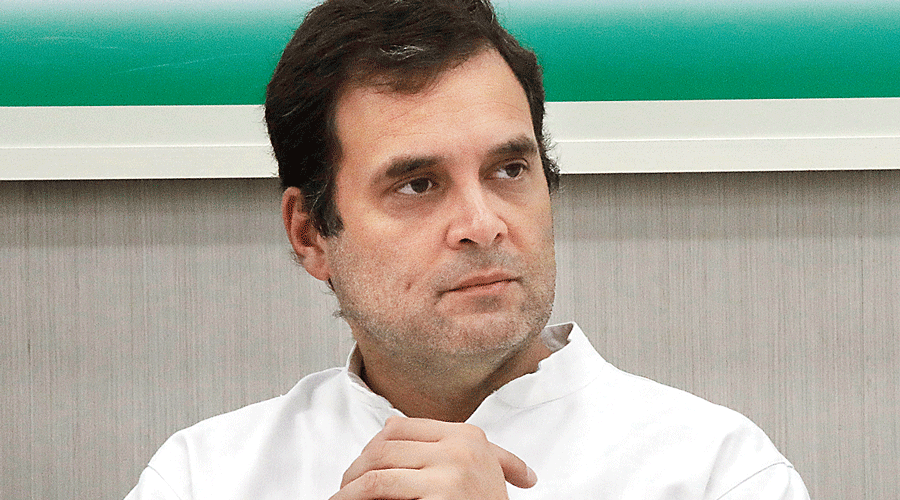Two major concerns the Congress is grappling with before the crucial brainstorming session (Chintan Shivir) begins on Friday in Udaipur are: party leadership and how to counter the BJP’s majoritarian politics.
While the leadership question is uppermost on the minds of participants, this will be answered later in August with the completion of the organisational elections. Although it is natural to expect a chorus from over 400 participants for Rahul Gandhi to take over the reins of the party at the earliest, sources indicate that the new president will get elected through the due process only.
The main question that the session is expected to answer is how to effectively counter the politics of polarisation of the RSS-BJP. The leadership wants to be able to articulate its views in an idiom that doesn’t allow the BJP to paint the Congress as anti-Hindu.
A senior Congress leader said: “The politics of polarisation is manifesting itself in different forms. They are designed in the form of language, food habits, cultural practices, appearances and relationship, apart from the obvious religiosity around temples and mosques. We have to clearly articulate our positions on every controversy.”
Entwined with this question of religious polarisation are issues like nationalism and patriotism, which often give undue political advantage to the BJP. The Congress had earlier tried to dig up the unsavoury past of the RSS in the freedom movement, incidents like Mahatma Gandhi’s assassination and the unimpressive record in fighting terrorism, but that hasn’t yielded results.
The Congress knows the limitations of its argument because the BJP has succeeded in projecting itself as a nationalist party. But the political committee for the session is trying to evolve a credible response to challenge the BJP’s monopoly on Hindu sentiment and nationalism.
Both these questions about leadership and the BJP’s divisive politics are intricately linked to the Congress’s struggle for revival before the critical Assembly elections over the next two years and the main battle in the 2024 parliamentary polls.
The Congress knows it will encounter an overt Hindutva propaganda in Gujarat, followed by Madhya Pradesh, Rajasthan, Chhattisgarh and Karnataka, and hence wants to be better prepared this time.
The third vital concern is organisational restructuring. The party is keen to make some structural changes this time to enthuse the ordinary workers and create a conducive atmosphere for the emergence of a new leadership.
On the economy too, the main objective of the Congress will be to emphasise that the decline in growth was not caused by Covid as Prime Minister Narendra Modi’s “disastrous decisions” had derailed the process much before the pandemic struck.
The 422 participants will be divided into groups of 70 to discuss these six subjects: politics, organisation, economy, agriculture, social justice and empowerment, and youth. The outcome of the discussions will take the shape of a resolution, to be called the Udaipur Declaration.











